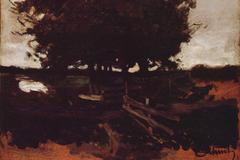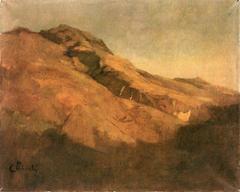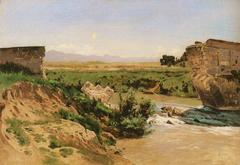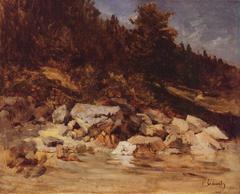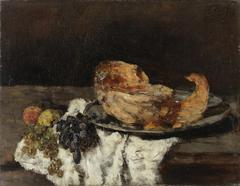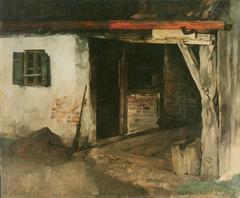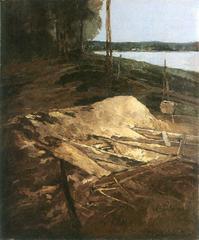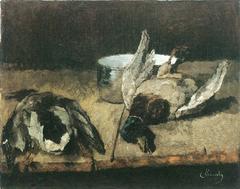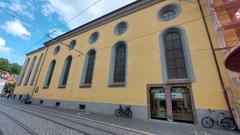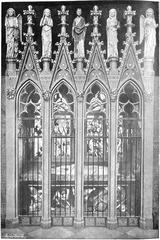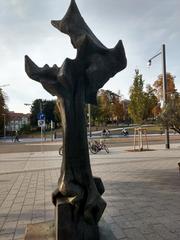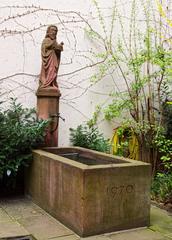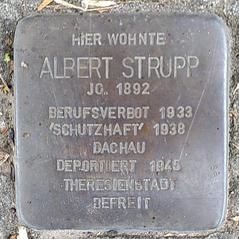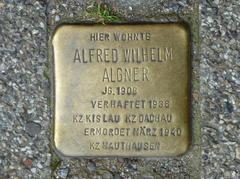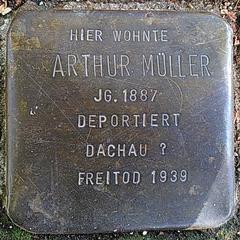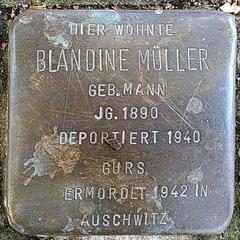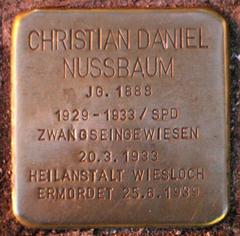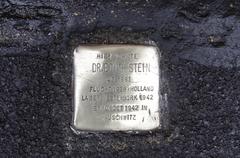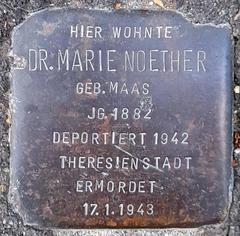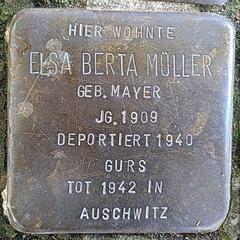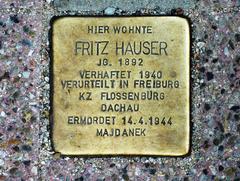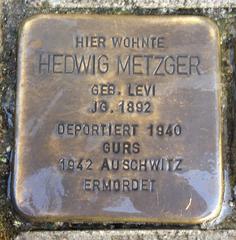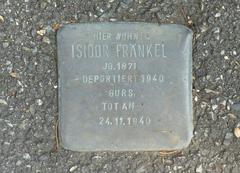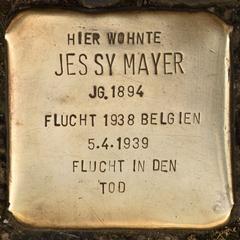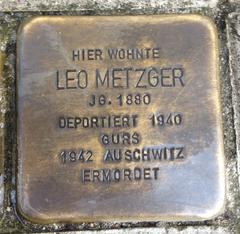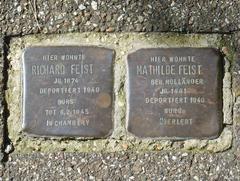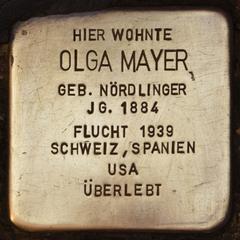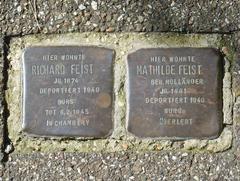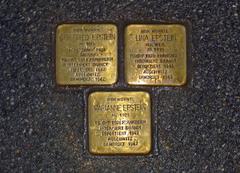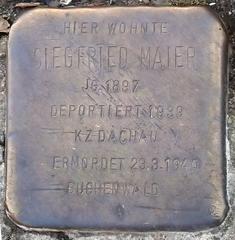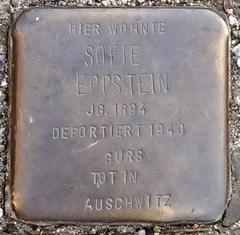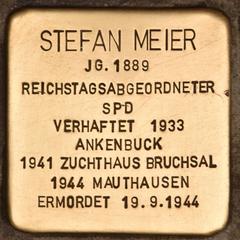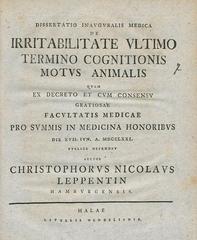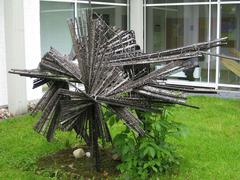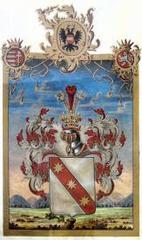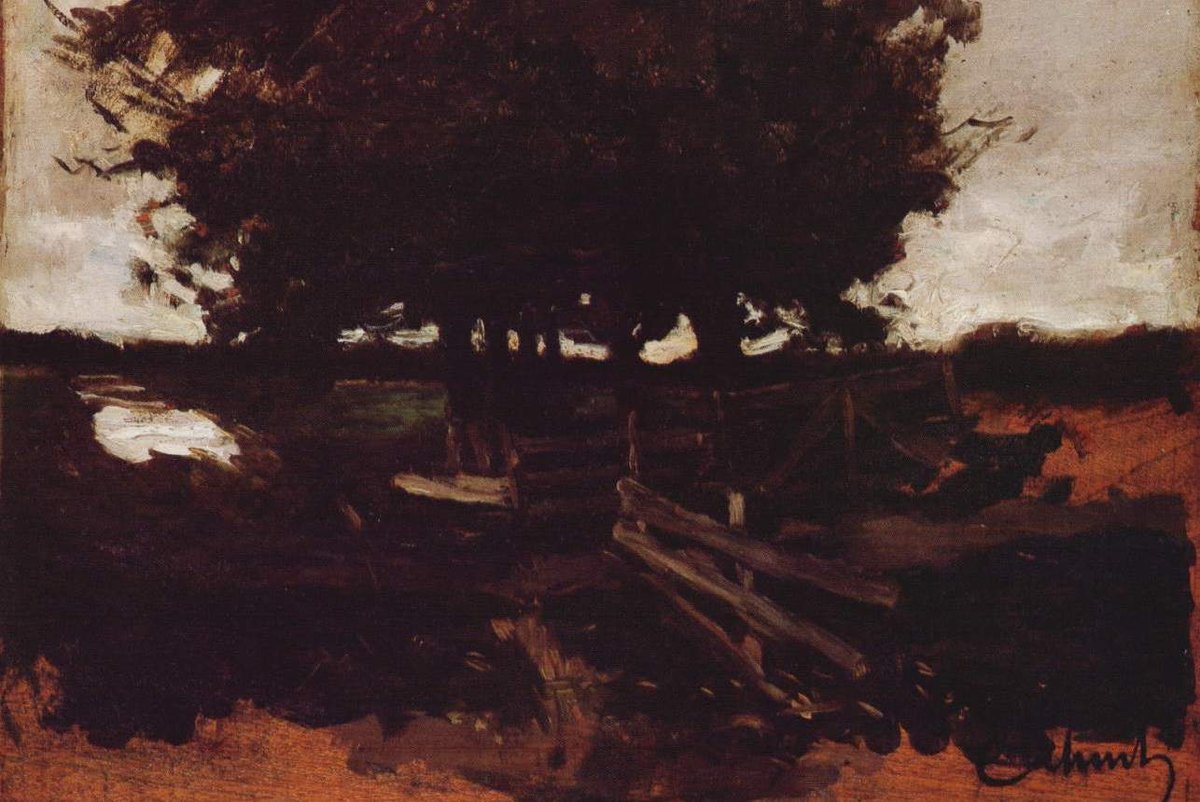
Morat-Institut Freiburg: Visiting Hours, Tickets, and Guide to a Contemporary Art Landmark
Date: 14/06/2025
Introduction
Set in the heart of Freiburg im Breisgau, the Morat-Institut für Kunst und Kunstwissenschaft stands as a prominent center for contemporary art, scholarship, and public engagement. Founded in the late 20th century by Dr. Rainer Michael Mason and his wife, the institute was established to bridge artistic practice, academic inquiry, and the broader community. It now serves as a dynamic platform for exhibitions, education, and creative dialogue, reflecting both local and global currents in modern art.
With a collection exceeding 7,500 graphic works and 500 paintings and sculptures—including masterpieces by Goya, Rembrandt, Dürer, Ian McKeever, and Marianne Hopf—the Morat-Institut offers a rich visual and intellectual experience. Its curatorial approach fosters thematic and interdisciplinary exploration, addressing topics such as spirituality, ecology, and the human condition. The institute’s accessible design, central location, and robust educational programming ensure it remains a vital destination for art lovers, students, and travelers exploring Freiburg’s vibrant cultural scene.
Contents
- About the Morat-Institut Freiburg
- Visitor Information
- Opening Hours
- Ticketing and Admission
- Accessibility
- Directions and Transportation
- Collection Highlights and Curatorial Philosophy
- Notable Exhibitions and Programs
- Guided Tours, Workshops, and Education
- Nearby Cultural Attractions
- Visual Experience and Digital Resources
- Frequently Asked Questions (FAQ)
- Future Developments
- Planning Your Visit
- Sources and Further Reading
About the Morat-Institut Freiburg
Housed in a striking modernist building, the Morat-Institut is both a private foundation and public exhibition venue. Its mission is to promote and present modern and contemporary art alongside art theory and scholarship, contributing to Freiburg’s reputation as a hub of cultural innovation.
Visitor Information
Opening Hours
- Tuesday to Sunday: 11:00 AM – 6:00 PM
- Closed: Mondays and select public holidays
Please check the official Morat-Institut website for updates on special holiday hours or temporary changes due to events.
Ticketing and Admission
- General Admission: €8
- Reduced Admission: €5 (students, seniors, groups)
- Children under 12: Free
- Family Pass: €15
- Permanent Collection: Free admission; ticketing applies for special exhibitions
Tickets are available at the entrance or online via the Morat-Institut’s ticket portal.
Accessibility
- Step-free access throughout the building
- Elevators and accessible restrooms
- Guide dogs are welcome
- Assistance for visitors with disabilities can be arranged by contacting staff in advance
Directions and Transportation
- Address: Lörracher Str. 31, Freiburg im Breisgau, Germany
- Public Transport: Tram lines 1 and 3 (Bertoldsbrunnen stop) and bus services provide easy access
- Parking: Limited street and garage parking nearby (Stadthalle and Rotteckring garages); public transport is recommended
Collection Highlights and Curatorial Philosophy
Core Holdings
The Morat-Institut’s collection spans a wide range of media, with a strong focus on works on paper, painting, sculpture, and installation. Highlights include:
- Graphic Works: Over 7,500 pieces, including prints and drawings by Goya, Rembrandt, and Dürer
- Paintings and Sculptures: Featuring German Expressionists, modernists, and contemporary artists such as Morandi, Schuch, Hoehme, Kocherscheidt, Ian McKeever, and Marianne Hopf
- Library: Approximately 50,000 volumes accessible by appointment for researchers and scholars
Curatorial Philosophy
The institute emphasizes thematic exhibitions that probe existential, ecological, and metaphysical subjects. Notably, the 2023 group show “Die Gottsucherbande” explored spirituality and materiality (Ian McKeever). Landscape and nature recur as motifs, as in Marianne Hopf’s “cosmic earth” series, which contemplates humanity’s relationship with the cosmos (Marianne Hopf).
A global perspective is evident, with works by Ricardo Calero, Jiang Sanshi, Christiane Löhr, Karl Prantl, Mario Reis, Andreas Walther, Yu-ichi Inoue, and Yamanobe Hideaki, fostering cross-cultural dialogue.
Notable Exhibitions and Programs
The Morat-Institut is recognized for its innovative exhibitions and events:
- “Die Gottsucherbande” (2023): Explored themes of spiritual searching in contemporary art (Ian McKeever)
- Marianne Hopf Retrospectives: Comprehensive exhibitions focusing on painting and drawing from 1992–2008 (Marianne Hopf)
- International Group Shows: Promoting exchange among artists from Germany and abroad
Events are frequently accompanied by lectures, workshops, and artist talks, encouraging deeper public engagement.
Guided Tours, Workshops, and Education
- Guided Tours: Available in German and English for individuals and groups; advance booking recommended
- Workshops: Designed for families, schools, and youth groups to foster hands-on engagement with contemporary art
- Lectures and Residencies: Feature artists and scholars from around the world
- Digital Engagement: Virtual tours and audio guides via the Audiala app enhance accessibility and interaction
Nearby Cultural Attractions
The Morat-Institut’s central location makes it easy to combine your visit with other Freiburg highlights:
- Freiburg Minster: Iconic Gothic cathedral
- Historic Old Town: Cobblestone streets, cafés, and boutiques
- Schlossberg Hill: Panoramic city views
- Other Museums: Augustiner Museum and contemporary galleries
For further cultural exploration, visit Visit Freiburg Visitor Information and Kunst in Freiburg.
Visual Experience and Digital Resources
- Exhibition Spaces: Modern, flexible galleries accommodate large-scale installations and intimate works alike
- Photography: Permitted for personal use in designated areas; flash and tripods are prohibited
- Online Resources: Virtual tours, image galleries, and research catalogues are available via the official website
- Library: Accessible by appointment for research purposes
Frequently Asked Questions (FAQ)
Q: What are the Morat-Institut’s opening hours?
A: Tuesday to Sunday, 11:00 AM – 6:00 PM; closed on Mondays.
Q: How much does admission cost?
A: General admission is €8; reduced tickets €5; children under 12 enter free. Admission to the permanent collection may be free; check the website for current details.
Q: Is the institute wheelchair accessible?
A: Yes, with step-free access, elevators, and accessible restrooms.
Q: Are guided tours available?
A: Yes, in German and English, bookable in advance.
Q: Can I take photographs?
A: Yes, for personal use in most areas, except where indicated.
Q: Is there parking?
A: Limited parking nearby; public transport is recommended.
Q: Are there nearby attractions?
A: Freiburg Minster, old town, Schlossberg hill, and other museums are within walking distance.
Future Developments
- Recent City Acquisition: The City of Freiburg’s recent purchase of the institute’s premises allows for new collaborations and enhanced programming (Badische Zeitung)
- Digital Expansion: New online archives, AR/VR experiences, and hybrid events
- Sustainability: Initiatives for eco-friendly exhibitions and operations
- Community Outreach: Inclusive programs and expanded educational offerings
Planning Your Visit
- Always check the official Morat-Institut website for up-to-date hours, ticketing, health guidelines, and event information.
- Subscribe to newsletters and follow on social media for the latest news.
- Download the Audiala app for audio guides and enhanced content.
- For additional cultural resources, visit Visit Freiburg Visitor Information and City of Freiburg Cultural Sites.
Summary and Visitor Tips
The Morat-Institut Freiburg is a cornerstone of contemporary culture in Baden-Württemberg, offering a blend of innovative exhibitions, scholarly resources, and inclusive public programs. Its commitment to accessibility, education, and digital engagement ensures a rewarding visit for all, whether you are an art connoisseur or a first-time visitor. Strategically located in Freiburg’s city center and supported by ongoing investment and community collaboration, the institute is poised to thrive as a leader in the international art scene.
Images and Maps
- Image 1: Exterior view of Morat-Institut Freiburg — Alt text: “Morat-Institut Freiburg contemporary art museum building entrance”
- Image 2: Ian McKeever’s “Lapland Paintings, Crossing” — Alt text: “Large-scale contemporary painting by Ian McKeever at Morat-Institut”
- Image 3: Guided art tour at Morat-Institut Freiburg — Alt text: “Visitors engaged in a guided tour at Morat-Institut”
[All images optimized for SEO and fast loading; embed interactive map for navigation.]
Sources and Further Reading
- Visiting the Morat-Institut in Freiburg: Hours, Tickets, History, and Highlights, n.d. (http://www.morat-institut.de)
- Morat-Institut Freiburg: Visiting Hours, Tickets, and Cultural Highlights, n.d. (http://www.morat-institut.de/)
- Morat-Institut Freiburg: Visiting Hours, Tickets, and Highlights of Contemporary Art, 2023. (https://morat-institut.de/)
- Visiting the Morat-Institut Freiburg: Hours, Tickets, Exhibitions & Visitor Guide, n.d. (https://www.morat-institut.de/ueber-uns/)
- Visit Freiburg Visitor Information, n.d. (https://visit.freiburg.de/en/brochures)
- Ian McKeever, 2023. Die Gottsucherbande - Works from the Collection of the Morat-Institut Freiburg. (https://www.ianmckeever.com/2023/06/26/die-gottsucherbande-works-from-the-collection-of-the-morat-institut-freiburg/)
- Marianne Hopf, n.d. (http://mariannehopf.de/index.php/ausstellung)
- Badische Zeitung, 2024. Dank Schenkung: Freiburg kann die Räume des Morat-Instituts kaufen. (https://www.badische-zeitung.de/dank-schenkung-freiburg-kann-die-raeume-des-morat-instituts-kaufen)
